Table of Contents
Quality Service Guarantee Or Painting Free

Get a rental agreement with doorstep delivery

Find the BEST deals and get unbelievable DISCOUNTS directly from builders!

5-Star rated painters, premium paints and services at the BEST PRICES!
Loved what you read? Share it with others!
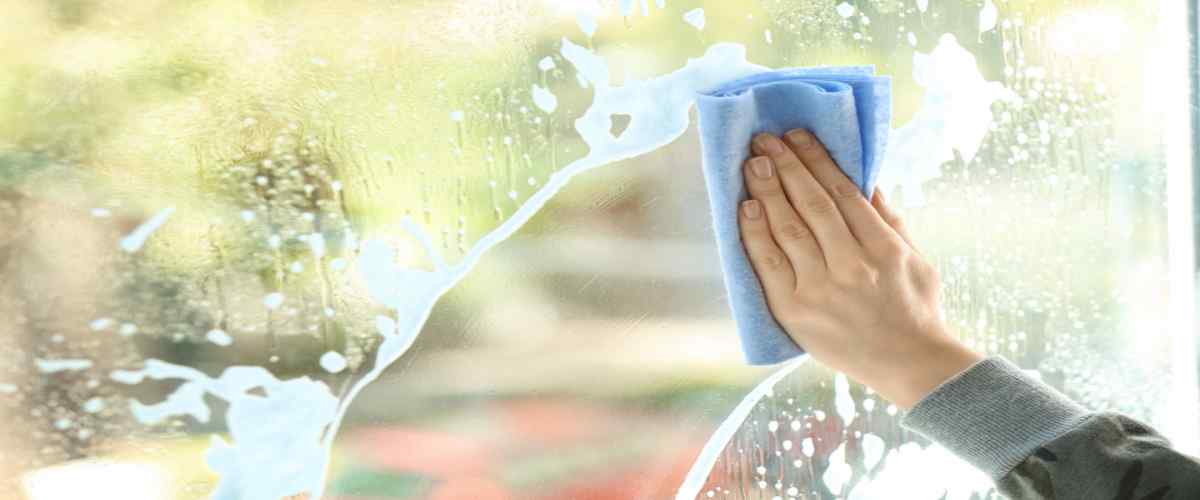
How to Clean a Glass in Your Home for a Streak-Free Shine
Table of Contents
Are you dealing with stubborn hard water spots? How can you remove mineral deposits and other tough stains from your glass without scratching the surface? Learning how to clean a glass properly can make your home’s glass surface look sparkling longer. Invest in high-quality glass windows, such as tempered or laminated glass. DIY methods such as vinegar-water solutions or mild dish soap are effective and budget-friendly.
Simple tips, such as using microfiber clothes and cleaning in circular motions, can help keep your glass looking spotless. For a streak-free finish, professional home cleaning services by NoBroker are the smarter choice. In this guide, we'll outline 16 different ways to clean glass, leaving it crystal clear and spotless effectively.
Understanding Different Types of Glasses
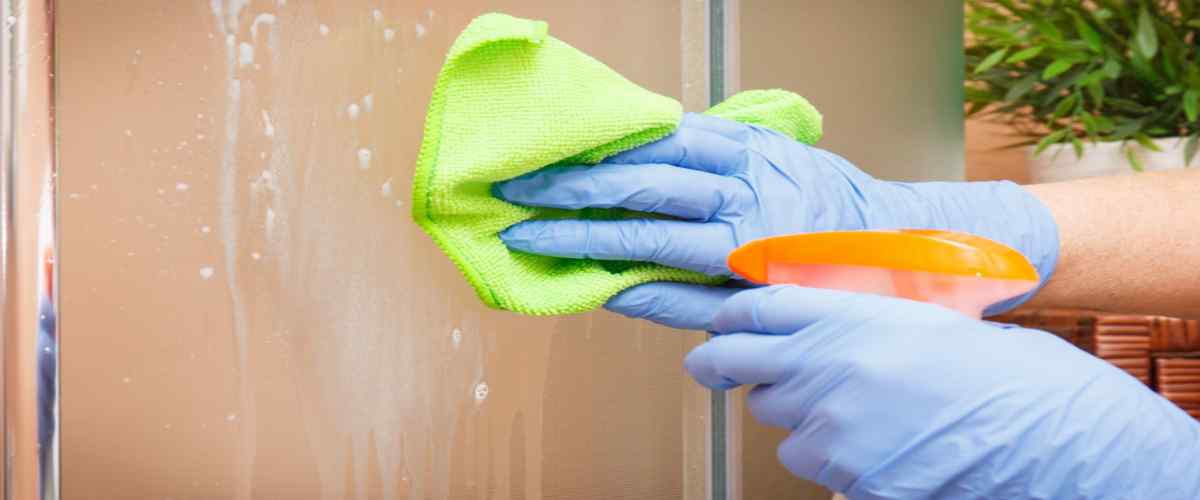
Glass is a versatile material used extensively in households for various applications. From windows and doors to tableware and ovenware, different types of glass serve distinct purposes based on their properties. Here are the various kinds of glass and their typical uses within a home.
Quality Service Guarantee Or Painting Free

Get a rental agreement with doorstep delivery

Find the BEST deals and get unbelievable DISCOUNTS directly from builders!

5-Star rated painters, premium paints and services at the BEST PRICES!
1. Float Glass
Float glass is the basic form of glass created by floating molten glass on a bed of molten tin, which produces a smooth and flat surface. This type of glass is commonly used in windows and doors.
2. Toughened Glass
Also known as tempered glass, toughened glass is heat-treated to increase its strength and resistance to impact. This type of glass is often used in shower doors, table tops, and glass railings.
3. Laminated Glass
Laminated glass consists of two or more layers of glass with a plastic interlayer sandwiched between them. This design makes the glass more secure and shatter-resistant. It's commonly used in car windscreens, as well as safety windows and skylights in homes.
4. Obscured Glass
Obscured glass is textured or coated to offer privacy while still letting light through. It's frequently used in bathrooms and areas where privacy is essential.
5. Double-Glazed Glass
Double-glazed glass consists of two panes of glass separated by a layer of inert gas, which serves as insulation. This glass type is energy-efficient and is often used in windows to help regulate indoor temperatures.
6. Tinted Glass
Tinted glass has been treated with a material that changes its colour, typically to reduce glare and heat from the sun. It is often used in windows and glass doors that are exposed to direct sunlight.
7. Wired Glass
This type of glass has a mesh of metal wire embedded within it. While not as strong as other types, it is more fire-resistant and is often used in fire doors and windows.
8. Patterned Glass
Patterned glass has textured designs on its surface, which can be decorative or functional. It is used in interior doors, furniture, and sometimes windows for decorative effect or privacy.
9. Borosilicate Glass
This type of glass is known for its resistance to thermal shock and chemical corrosion. It's frequently used in ovenware and laboratory glassware.
10. Low-E Glass
Low-emissivity (Low-E) glass has a microscopically thin coating that reflects heat. It's used in windows to improve energy efficiency by reducing heat loss during cold weather and heat gain during warm weather.
16 Effective Methods for Cleaning Glass Surfaces in Your Home
Cleaning glass surfaces can be a daunting task, but with the right approach, it doesn't have to be. In this guide, we unveil 16 effective methods, infused with secret cleaning tips, that will make your glass surfaces sparkle like never before. Read on to find out more.
1. Vinegar and Water
A classic homemade cleaner works wonders.
- Mix equal parts of vinegar and water.
- Spray the mixture onto the glass surface.
- Wipe away with a clean cloth for a streak-free finish.
- Effective Against: Hard water stains, water spots, soap scum, grease, and grime.
- Best For: Windows, mirrors, shower doors, glassware, and other smooth glass surfaces.
2. Newspaper
It may sound outdated, but using newspaper to clean glass is a tried and true method.
- Spray water or a glass cleaner onto the glass.
- Crumple up a piece of newspaper.
- Use the newspaper to wipe the glass, making circular motions until clean.
- Effective Against: General dirt, light smudges
- Best For: Windows, mirrors
3. Lemon Juice
Not just for cooking, lemon juice also serves as an excellent natural cleaner.
- Cut a lemon in half.
- Rub the lemon directly onto the glass surface.
- Wipe away the lemon juice and dirt with a clean cloth.
- Effective Against: Grease, fingerprints, hard water stains, light tarnish
- Best For: Kitchen glass surfaces, glass cookware, shower doors
4. Cornstarch
- Perhaps surprisingly, cornstarch can clean glass effectively.
- Make a paste with cornstarch and a small amount of water.
- Apply the paste to the glass using a cloth.
- Rinse with water and wipe dry.
- Effective Against: Grease spots, light grime
- Best For: Windows, automotive glass
5. Rubbing Alcohol
Rubbing alcohol is perfect for cleaning and sanitising.
- Dampen a cloth with rubbing alcohol.
- Wipe the glass surface until all stains are removed.
- Dry with a clean cloth
- Effective Against: Adhesive residue, permanent marker
- Best For: Windows, mirrors
6. Microfiber Cloth
Microfiber cloths are lint-free and highly absorbent, making them ideal for cleaning glass.
- Dampen the microfiber cloth slightly with water.
- Wipe down the glass surface in a circular motion.
- Use a dry section of the cloth to buff out any streaks.
- Effective Against: Smudges, fingerprints
- Best For: All types, including electronic screens
7. Club Soda
If you've run out of other cleaning supplies, club soda can be a great stand-in.
- Pour some club soda into a spray bottle.
- Spray onto the glass surface.
- Wipe with a clean cloth, paying attention to any streaks or spots.
- Effective Against: Light stains, mineral spots
- Best For: Windows, glassware
8. Squeegee
Professional window cleaners swear by this tool.
- Wet the glass surface with water or a glass cleaner.
- Use the squeegee to scrape off the water, working from top to bottom.
- Wipe down any remaining streaks with a clean cloth.
- Effective Against: General dirt, soap scum
- Best For: Windows, shower doors
9. Tea
Yes, you read that right. Brewed tea, particularly black tea, can be effective in cleaning glass.
- Brew a strong cup of tea.
- Allow to cool and then pour into a spray bottle.
- Spray onto the glass and wipe clean with a cloth.
- Effective Against: Light streaks, smudges
- Best For: Windows, mirrors
10. Coffee Filters
These aren't just for making coffee.
- Spray the glass surface with water or a glass cleaner.
- Use a coffee filter to wipe down the glass, making circular motions.
- Use a dry coffee filter to buff out any remaining streaks.
- Effective Against: Streaks, light grime
- Best For: Windows, automotive glass
11. Homemade Cleaner
Don't underestimate the power of a homemade cleaner.
- Mix equal parts of water, white vinegar, and a few drops of dish soap in a spray bottle.
- Spray onto the glass surface.
- Wipe clean with a cloth.
- Effective Against: General dirt, grease
- Best For: Windows, mirrors, glassware
12. Baking Soda
Baking soda acts as a mild abrasive.
- Make a paste with baking soda and water.
- Apply the paste onto stubborn stains or spots.
- Allow it to sit for a few minutes and then wipe it clean.
- Effective Against: Hard water stains, soap scum
- Best For: Shower doors, windows
13. Hydrogen Peroxide
A stronger option, hydrogen peroxide can be used for deep cleaning.
- Apply hydrogen peroxide to a cloth.
- Wipe down the glass, focusing on any stains or spots.
- Rinse with water and dry.
- Effective Against: Organic stains, mildew
- Best For: Shower doors, glassware
14. Dish Soap
A small drop of dish soap can go a long way.
- Add a few drops of dish soap to a bowl of warm water.
- Dip a cloth into the soapy water.
- Wipe down the glass surface and then rinse with clean water.
- Effective Against: Grease, food residue
- Best For: Glassware, windows
15. Olive Oil
While it may sound counterintuitive, a small amount of olive oil can be used to polish glass surfaces, giving them an extra shine.
- Apply a small amount of olive oil to a cloth.
- Wipe the glass surface in a circular motion.
- Use another clean cloth to wipe off the excess oil.
- Effective Against: Sticker residue, light grease
- Best For: Windows, glassware
16. Professional Services
While DIY methods and household solutions can be effective for routine glass cleaning, there are instances where professional services are not just preferable, but essential. Unlike standard cleaning options, professional services offer a level of cleanliness, safety, and expertise.
How to get Hard Water Stains Off Glass?
Hard water stains often appear as cloudy spots or streaks on glass. Here is how to remove hard water stains from the glass surface:
- Vinegar Solution: Spray a 1:1 mix of vinegar and water, let it stay for 15-20 minutes, then wipe with a microfiber cloth.
- Baking Soda Paste: Mix baking soda with a little water, gently rub on stains, and rinse for a spotless finish.
- Commercial Cleaners: For stubborn stains, use a glass-safe hard water stain remover.
Cost of DIY vs Professional Glass Cleaning Services
When it comes to cleaning glass, DIY is a cheaper option, but professional services ensure quality, safety, and long-lasting shine. Below is the cost comparison table of DIY vs professional glass cleaning services:
| Method | Cost | Pros | Cons |
| DIY | ₹200 - ₹600 | Low cost, flexible time | Time-consuming |
| Professional cleaning | ₹800-₹2000 | Expert finish, quick | Higher upfront pricing |
Preventive Tips to Keep Glass Sparkling Longer
The best way to clean glass is not just wiping it occasionally but also adopting preventive measures to keep it streak-free and shining. Below are the preventive tips to keep your glass sparkling for long:
- Use microfiber cloths instead of paper towels to avoid scratches.
- Apply a vinegar-water solution weekly to prevent dirt buildup.
- Keep windows and mirrors dry after cleaning to avoid water stains.
- Install blinds or curtains to reduce dust and smudges.
- Avoid touching glass surfaces with oily or wet hands.
- Clean frames and edges regularly to prevent grime from spreading.
Clean Your Home with Cleaning Professionals Via NoBroker
When it comes to achieving a deep clean for your glass surfaces, sometimes DIY methods fall short. With specialised equipment and industrial-grade cleaning agents, hiring a professional house cleaner to tackle stubborn stains and hard-to-reach areas would stump even the most diligent DIYer. NoBroker professional cleaners help remove tough stains, hard water marks, and dust without leaving streaks or scratches. Contact NoBroker.com today!
Frequently Asked Questions
Ans. The most effective way to clean a glass is to use warm, soapy water. Fill the sink with warm water and add a few drops of washing-up liquid. Submerge the glass and gently scrub it with a sponge or soft cloth.
Ans. Yes, many glasses are dishwasher-safe and can be cleaned in a dishwasher. However, it's important to check the manufacturer's instructions to ensure your particular glassware is suitable for this method.
Ans. For stubborn stains like lipstick or coffee marks, you can use baking soda. Make a paste with a small amount of water and baking soda, then apply it to the stained area. Gently scrub using a soft cloth or sponge, and then rinse thoroughly.
Ans. It is generally not recommended to use bleach for cleaning glasses, as it may leave harmful residues and can weaken the glass over time.
Ans. Water spots are generally caused by minerals in tap water that are left behind once the water has evaporated. To prevent this, you can either hand-dry your glasses immediately after washing with a clean, lint-free towel or you can use a rinse aid in your dishwasher. A natural alternative is to add a splash of white vinegar to the rinse water.
Ans. Mix equal parts white vinegar and water. Spray it on the glass and wipe with a microfiber cloth.
Ans. Yes, a few drops of mild dish soap in water can clean glass effectively. Rinse with clean water and dry with a microfiber cloth to avoid scratches.
Ans. Clean your home’s glass windows or glass surfaces every 1–2 weeks.
Recommended Reading
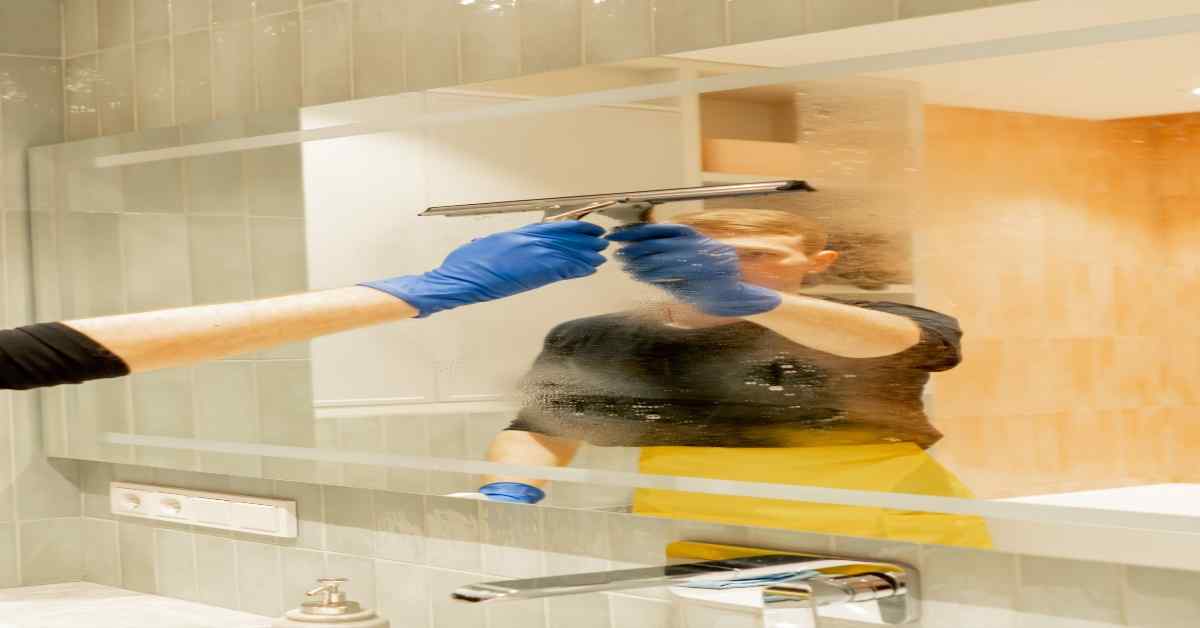
How to Remove Stains from Mirrors: 6 Effective Tips and Methods
January 31, 2025
7216+ views
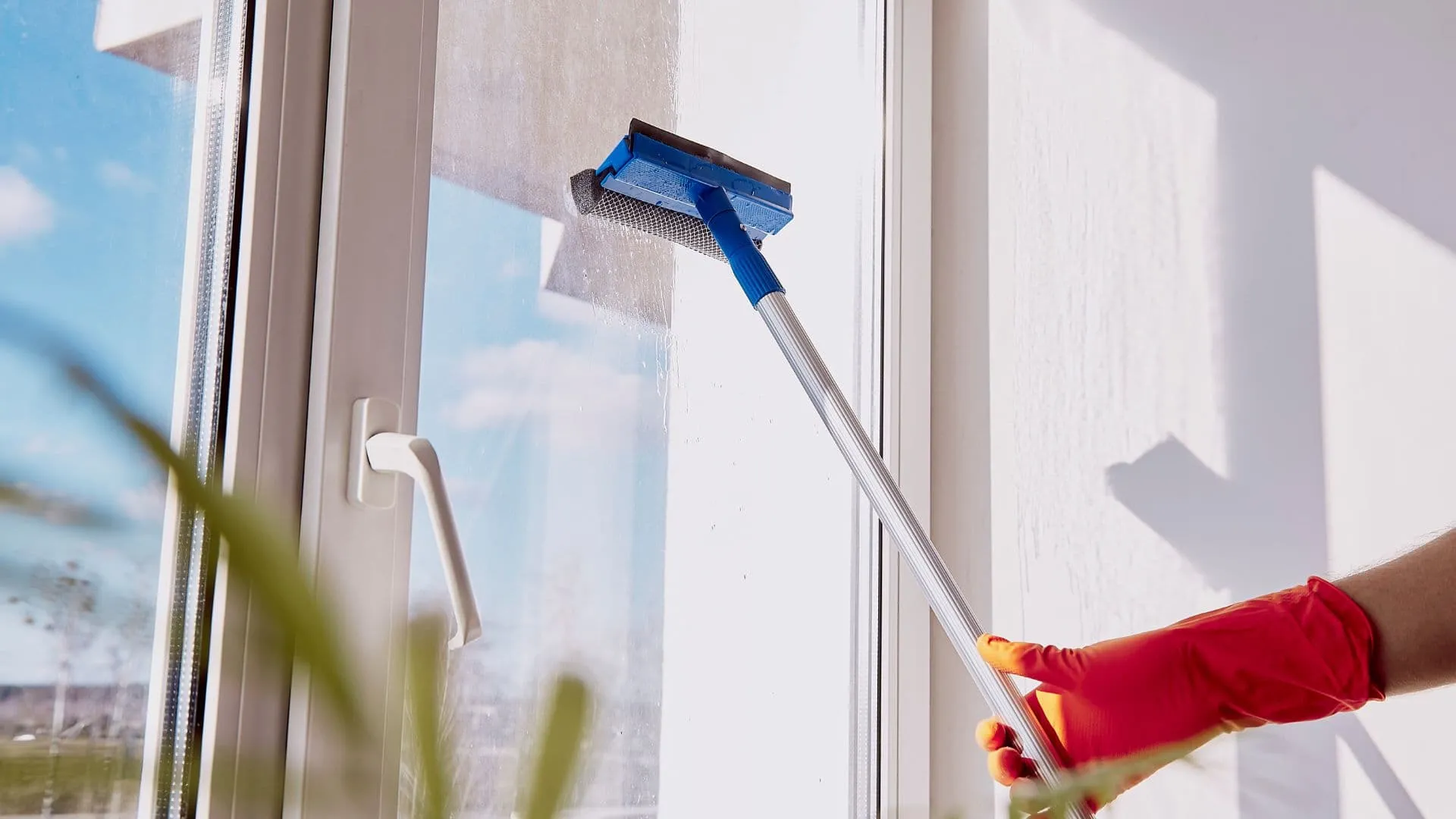
10+ Best Window Cleaning Tools for Homes and Offices in 2026
April 29, 2025
6177+ views
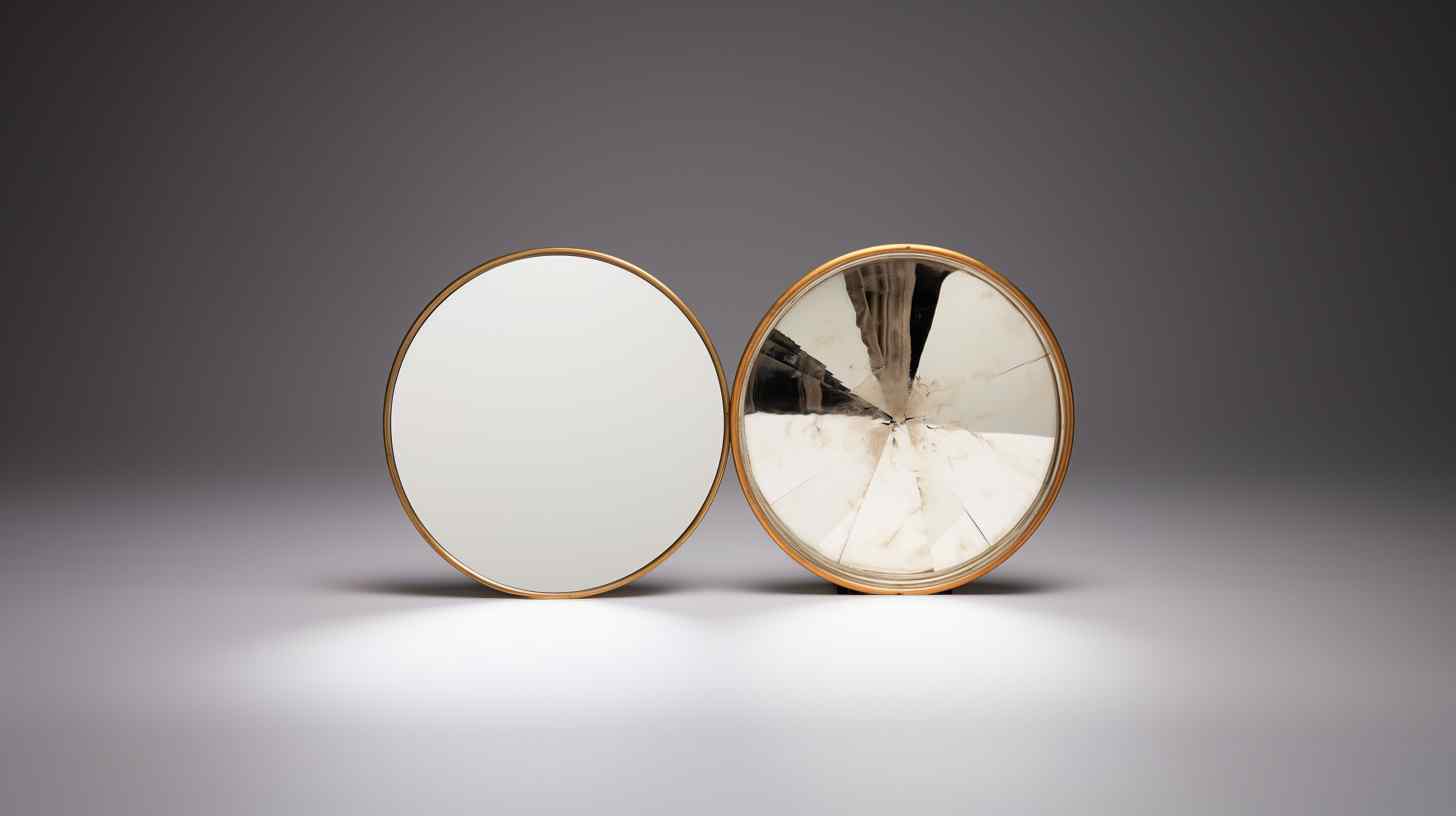
How to Clean a Mirror: Tips and Tricks for a Crystal-Clear Reflection
January 31, 2025
5071+ views

How to Clean a Glass in Your Home for a Streak-Free Shine
October 19, 2023
3799+ views
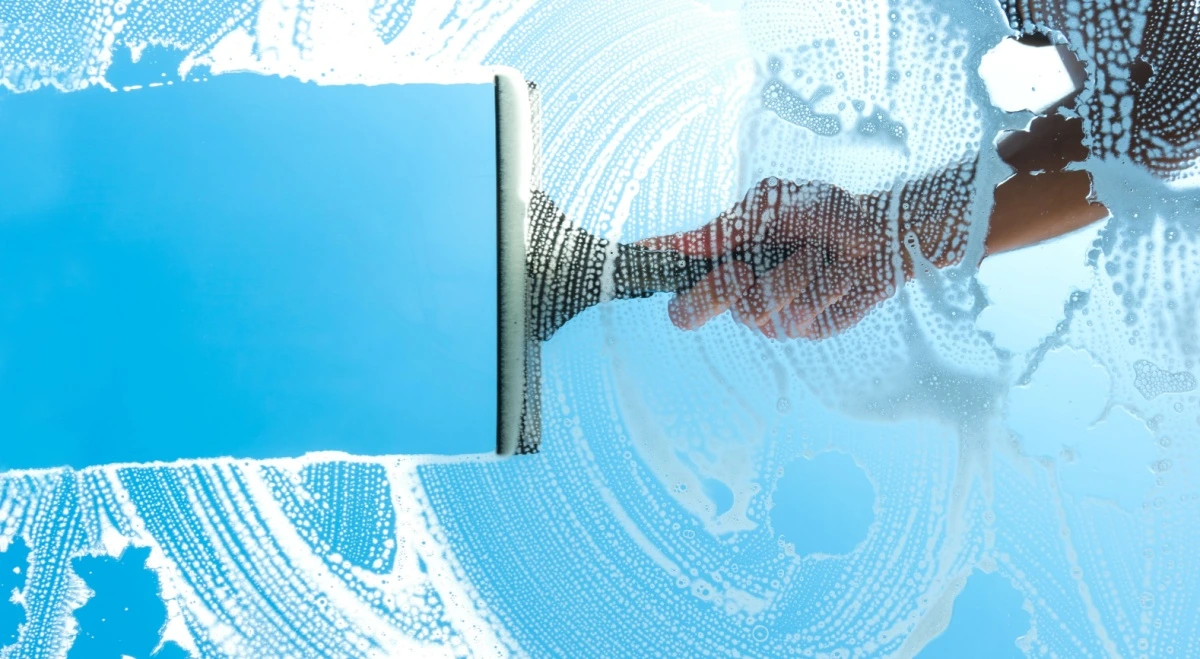
How to Wash Glass Windows | Step-by-Step Guide for Streak-Free Cleaning
January 31, 2025
1445+ views
Loved what you read? Share it with others!
NoBroker Easy Cleaning Tips Testimonials
Good
Wonder you
Looking good
Good condition
Extremely satisfied with the cleaning service, the team was careful, thorough, and really attentive to details. My home feels spotless and well taken care of.
Nice
Nice
The cleaners were thorough, efficient, and did a fantastic job.
The cleaners were thorough, efficient, and did a fantastic job.
The cleaners were thorough, efficient, and did a fantastic job.
One of the best company
Best work 💝
Wonderful 😊
Provide good and best services 👍
Nice!!
Great experience 😁
Good Place
Very good experience
Excellent
Suparr
Good
Awesome
My goods were delivered on time, as promised, with careful handling.
NoBroker Movers made my relocation stress-free and seamless.
The service was reliable, with attention to detail and a commitment to quality.
My goods were delivered on time, as promised, with careful handling.
NoBroker Movers provided a smooth and stress-free relocation experience.
Im using their Bathroom subscription plan from past 2 years and their services are very good.
Booked full house cleaning for Ugadi, they were on time and completed work very neatly Highly recommended !!
Professional and hustle free services
Took full home cleaning. They did an amazing job!
Most Viewed Articles
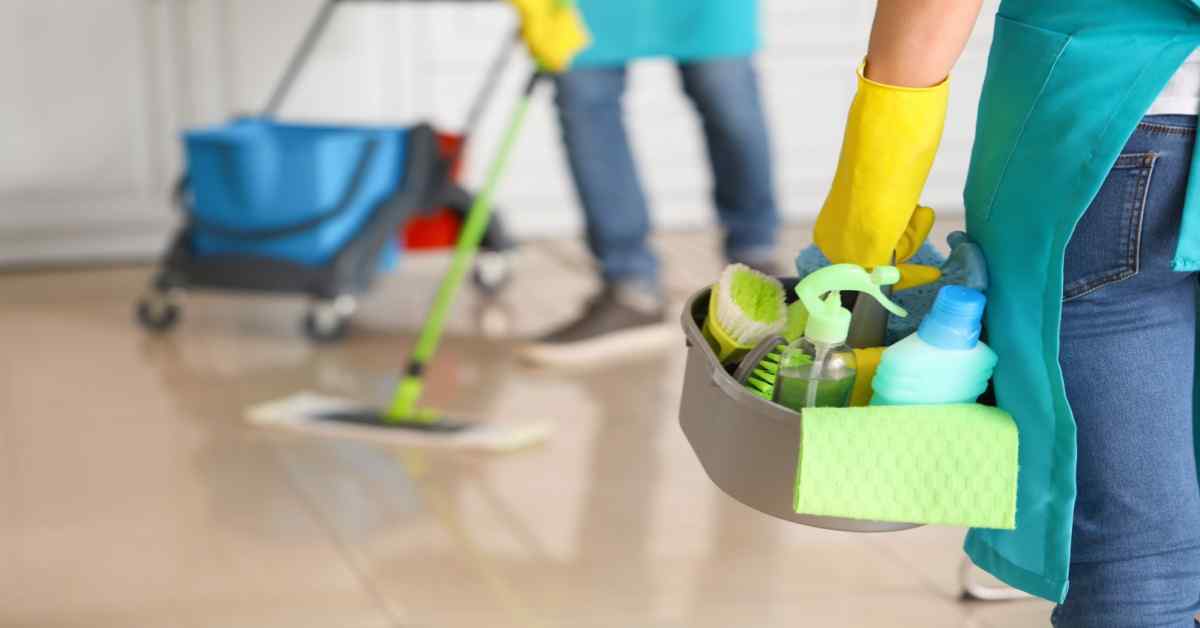
List of the Best Home Cleaning Apps: Book Home Cleaning Services for Daily and Deep Cleaning
January 31, 2025
24308+ views
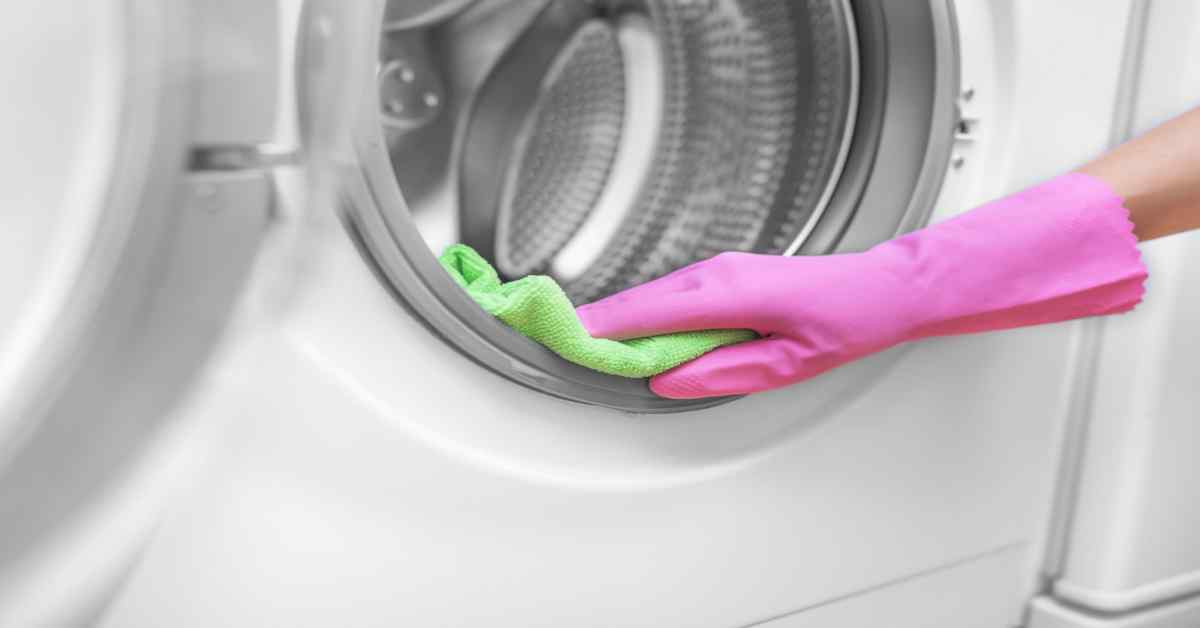
Deep Clean Your Washing Machine: Step-by-Step Guide & Tips
January 31, 2025
20386+ views
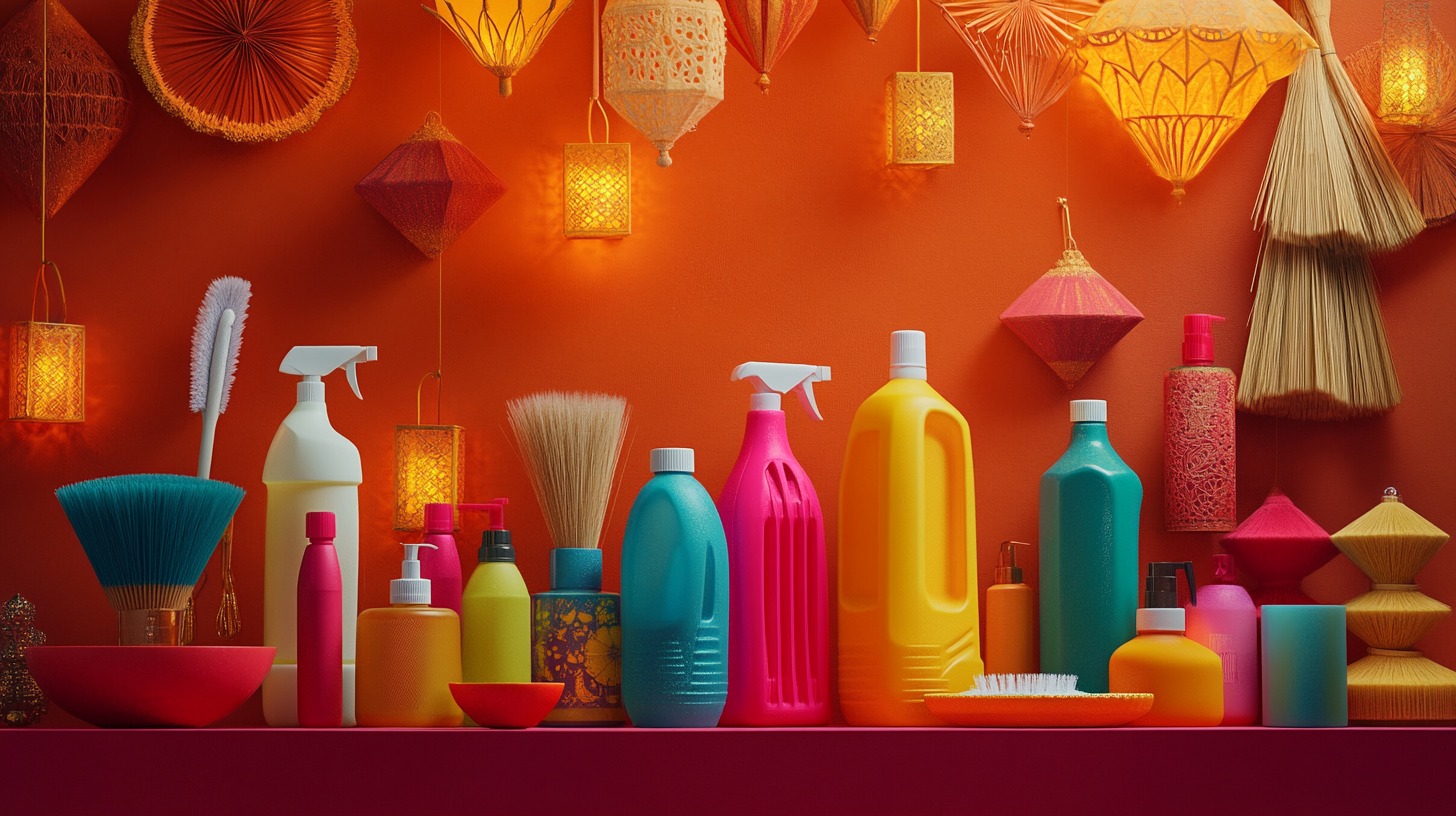
Diwali Cleaning Tips and Guide: Make Your Home Shine for the Festival in 2026
January 31, 2025
18153+ views
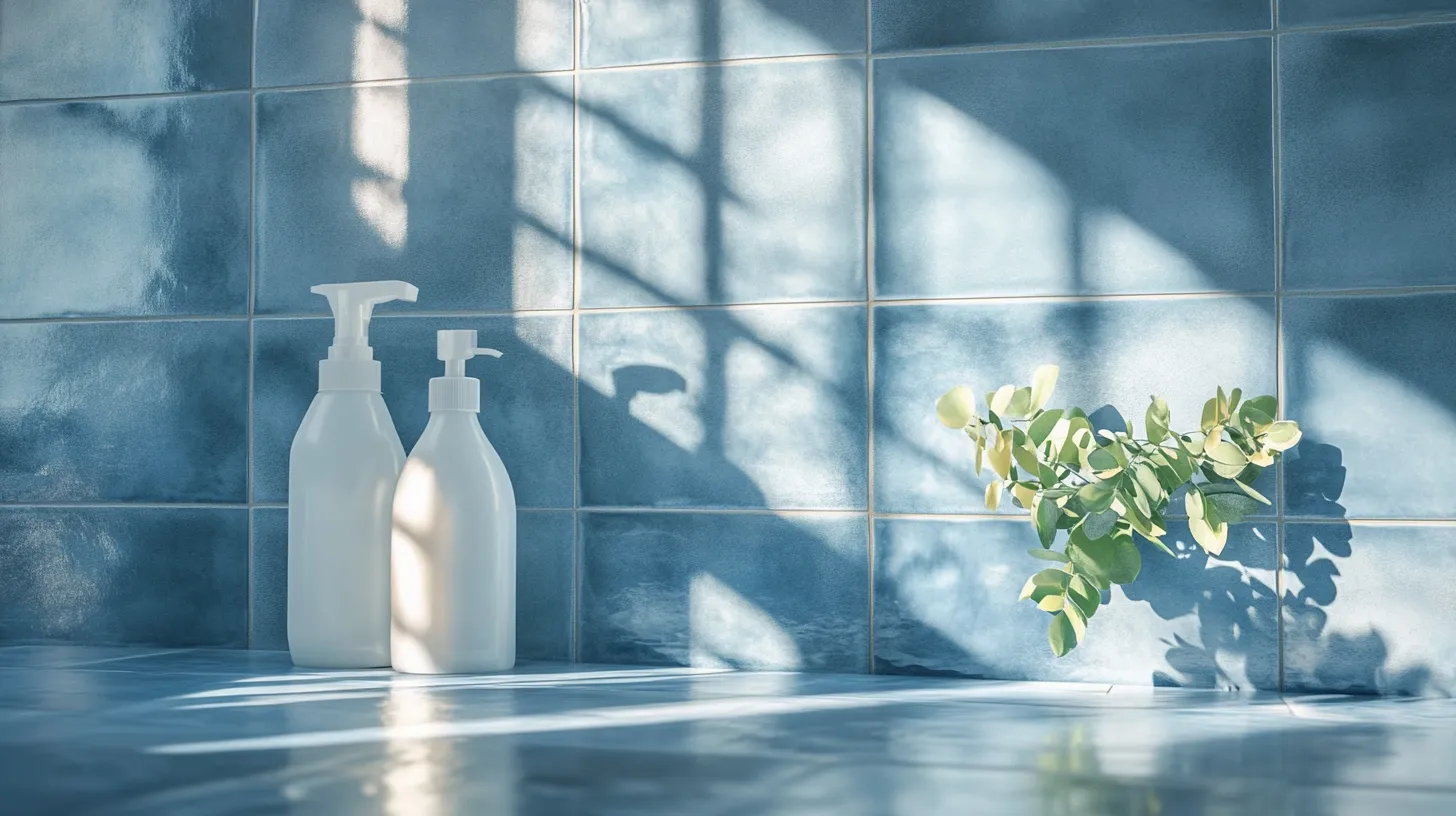
Top 10 Tile Cleaner Liquids with Prices in India for 2026
February 23, 2025
17205+ views
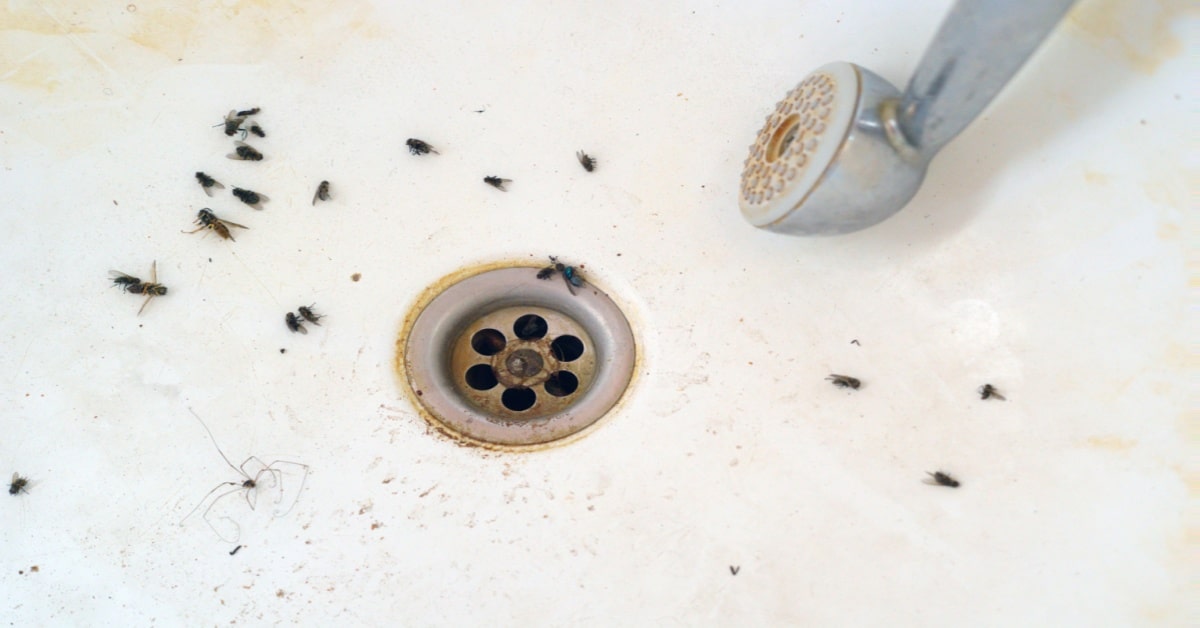
How to Get Rid of Bathroom Flies: 8 Quick Methods
January 31, 2025
16889+ views
Recent blogs in
How to Remove Ink Stains From Clothes: Methods and Fabric-Specific Solutions
January 9, 2026 by Vivek Mishra
How to Remove Yellow Stains From White Clothes: 6 Effective Methods to Remove
January 9, 2026 by Krishnanunni H M
How to Clean Non Stick Cookware Safely Without Damaging the Coating in 2026
January 7, 2026 by Siri Hegde K
Complete Deep Cleaning Checklist for Every Room in Your Home 2026
December 23, 2025 by Krishnanunni H M
Ultimate Daily Cleaning Checklist by Room for Easy Home Maintenance
December 17, 2025 by Kruthi








 Full RM + FRM support
Full RM + FRM support
Join the conversation!